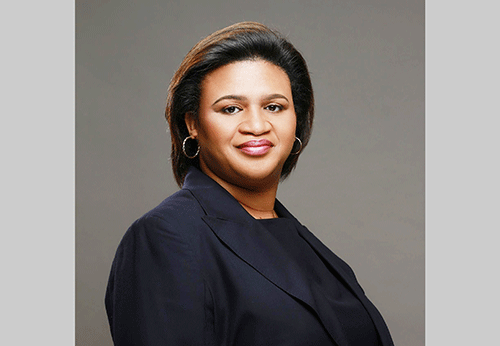The landscape of Namibia’s mining and finance sectors is changing, and women are at the forefront of this transformation. For generations, young women and working professionals rarely saw themselves represented in these industries, leading to a persistent gender gap that we are only now beginning to address.
The statistics paint a stark picture.
In Namibia, women make up just 18% of the mining workforce, with only 10% holding executive positions since 2009. This mirrors a global trend where women account for a mere 15% of the mining workforce worldwide. The finance sector faces similar challenges, with only 18% of executive roles held by women across Africa.
But why does this matter? Beyond the fundamental values of equality and equity, diversity has been proven to significantly boost financial and operational performance. The mining industry’s impact on society is often underestimated, and women’s participation is crucial for creating a more equitable and sustainable sector.
Studies have consistently shown that inclusive companies are more innovative, make better business decisions, and are more likely to capture new markets. In mining specifically, diverse crews experience 67% lower injury rates, and companies with women on their boards enjoy higher profit margins of up to 23%.
Encouragingly, we are beginning to see a significant shift. Women are breaking barriers and making strides toward a future where their presence in leadership roles is not merely an aspiration, but the norm. At Nedbank Namibia, we are proud of our commitment to gender equality. Women make up 64% of our staff, 56% of our management team, and an impressive 70% of those in management are black females. Our board currently boasts 37.5% female representation, exceeding the African average.
The Women in Mining Association of Namibia is at the forefront of promoting gender inclusivity in the sector, and a lot can be learnt from their progressive leadership. With 700 members and counting, this organisation is dedicated to advancing gender equality, and empowering women in the Namibian mining industry. Their recent first annual summit highlights the growing influence and impact of women in the field.
The mining sector, a cornerstone of Namibia’s economy, is experiencing a significant resurgence, particularly in uranium and gold mining. In 2023, the mining industry’s contribution to GDP rose to 14.4%, up from 9% in 2021, and 11.9% in 2022.
Total direct employment in the sector grew by 12.6% in 2023, driven by new positions created through the restart of the Langer Heinrich mine, and the expansion of other operations.
However, while these numbers remain important, mining entities are now evaluated not only on their economic impact, but also on their commitment to inclusivity and sustainability. Stakeholders are paying closer attention to how companies promote gender equality while tackling environmental issues such as water use, habitat protection, climate change and the rehabilitation of sites once mining operations wrap up.
The mining sector remains a longstanding economic pillar in Namibia, one that sets an important example for emerging industries. With the expansion of the oil and gas sector and the development of the green hydrogen industry, it is crucial to ensure that women are at the forefront—whether in technical roles, leadership positions or entrepreneurial ventures that drive this growth.
Nedbank Namibia, known as the ‘Green Bank’, no longer sees the integration of Environmental, Social and Governance (ESG) principles as a choice, but rather a fundamental commitment.
We acknowledge the mining industry’s vital role in driving economic growth, while also recognising the need to evolve toward sustainable practices that safeguard our planet. This is why Nedbank Namibia actively supports initiatives that promote sustainability—whether through financing green bonds, or investing in renewable energy projects—while also fostering the financial inclusion of women.
Breaking down the traditional male-dominated mentality and addressing the negative environmental impacts of mining are two important and long-term endeavours. Therefore, we will remain committed to lending a firm hand in this transformation, ensuring that mining can be both profitable and sustainable, and that leadership can be both powerful and inclusive.
*Martha Murorua is the managing director of Nedbank Namibia, with over two decades of experience in the banking and financial services sector. She is a passionate advocate for gender equality and sustainable business practices.



